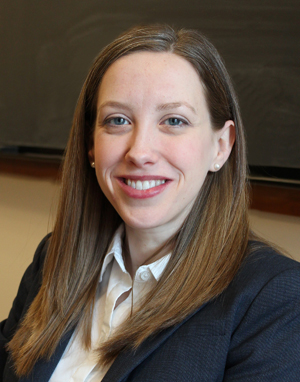 New Brunswick, N.J. – While advances in cancer treatments have led to an increase in the number of childhood cancer survivors in the United States, this population faces significant health risks including early cardiovascular disease. To address this concern, Katie Devine, PhD, a behavioral scientist at Rutgers Cancer Institute of New Jersey, will explore how a cancer-specific mobile application targeting physical activity might help this population. Dr. Devine recently was awarded an $824,000 Career Development Grant from the National Cancer Institute which will support this work.
New Brunswick, N.J. – While advances in cancer treatments have led to an increase in the number of childhood cancer survivors in the United States, this population faces significant health risks including early cardiovascular disease. To address this concern, Katie Devine, PhD, a behavioral scientist at Rutgers Cancer Institute of New Jersey, will explore how a cancer-specific mobile application targeting physical activity might help this population. Dr. Devine recently was awarded an $824,000 Career Development Grant from the National Cancer Institute which will support this work.
According to the American Cancer Society, more than 80 percent of children and teens with cancer survive their disease at least five years beyond their diagnosis. Studies have shown that many adult survivors of childhood cancers are at risk for early cardiovascular disease due to treatment effects that might present themselves later in life. Physical activity may help reduce this risk, but a report from the Childhood Cancer Survivor Study shows that adult survivors of childhood cancers are less likely to meet federally-established physical activity guidelines. This new research will focus on the development of a mobile app designed to promote physical activity and fitness for adolescent and young adult survivors, which ultimately could help promote healthy behavior and improve quality of life for this population.
A preliminary study in which Devine was involved examined the feasibility of enrolling and retaining adolescent and young adult childhood cancer survivors in a physical activity intervention that featured a website component. Feedback from that group indicated that logging in to a computer was a barrier at times for participants. “We found that if users didn’t have immediate access to their individualized fitness plan, they weren’t as engaged in accomplishing the recommended physical activity,” notes Devine, who is also an assistant professor of medicine at Rutgers Robert Wood Johnson Medical School. “Nearly 70 percent of young adults have a smartphone regardless of income or education. It only makes sense to develop tools that are convenient and are a natural extension of their daily lives.”
Mobile applications that promote physical activity are not new, but there are none that specifically target the needs of young adults who have gone through cancer treatment. For instance, the app that Devine and colleagues will develop will provide information about common side effects of treatments a patient received and recommend modifications to an individual’s physical activity plan. The overall aim is to examine how the app might help these survivors keep up with exercise goals and improve their cardiovascular fitness, muscle strength, fatigue and other quality of life factors relating to health. The technology will be complemented by interventions brought forth in a weekly group fitness program.
Up to 88 childhood cancer survivors who are currently between the ages of 13 and 25 and have not had cancer treatment for at least six months will be sought to participate in the evaluation of the program. Many of the volunteers are expected to come from the Cancer Institute’s own LITE (Long-term Information and Treatment effects and Evaluation) Program, which helps childhood cancer patients navigate the management of their survivorship as they transition to adulthood. Using the mobile app, participants will set personal fitness goals that will be monitored in real time. They will earn achievements for completing their personal goals. They also will have on-demand access to videos depicting group exercise activity and will be able to send messages to other participants for social support. In conjunction with using the mobile app, participants will have an opportunity to attend 12 weekly group sessions, where they will receive fitness education and instructor-led exercise.
“This particular population often has difficulty in transitioning to post-treatment management of their care. By providing childhood cancer survivors with a physical fitness intervention tailored specifically to their needs, we can help reduce their risk of heart disease and possibly other serious health conditions,” adds Devine.
The grant (K07CA174728) will support the work through 2019.
About Rutgers Cancer Institute of New Jersey
Rutgers Cancer Institute of New Jersey (www.cinj.org) is the state’s first and only National Cancer Institute-designated Comprehensive Cancer Center. As part of Rutgers, The State University of New Jersey, the Cancer Institute of New Jersey is dedicated to improving the detection, treatment and care of patients with cancer, and to serving as an education resource for cancer prevention. Physician-scientists at the Cancer Institute engage in translational research, transforming their laboratory discoveries into clinical practice, quite literally bringing research to life. To make a tax-deductible gift to support the Cancer Institute of New Jersey, call 732-235-8614 or visit www.cinj.org/giving. Follow us on Facebook at www.facebook.com/TheCINJ.
The Cancer Institute of New Jersey Network is comprised of hospitals throughout the state and provides the highest quality cancer care and rapid dissemination of important discoveries into the community. Flagship Hospital: Robert Wood Johnson University Hospital. System Partner: Meridian Health (Jersey Shore University Medical Center, Ocean Medical Center, Riverview Medical Center, Southern Ocean Medical Center, and Bayshore Community Hospital). Major Clinical Research Affiliate Hospitals: Carol G. Simon Cancer Center at Morristown Medical Center, Carol G. Simon Cancer Center at Overlook Medical Center, and Cooper University Hospital. Affiliate Hospitals: JFK Medical Center, Robert Wood Johnson University Hospital Hamilton (CINJ Hamilton), Shore Medical Center, Somerset Medical Center, The University Hospital and University Medical Center of Princeton at Plainsboro.

